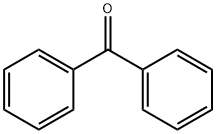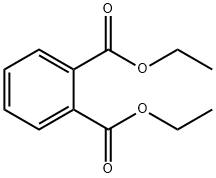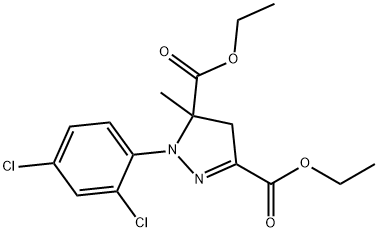3-Pentanone
Synonym(s):3-Pentanone, Ethyl ketone;Diethyl ketone
- CAS NO.:96-22-0
- Empirical Formula: C5H10O
- Molecular Weight: 86.13
- MDL number: MFCD00009320
- EINECS: 202-490-3
- SAFETY DATA SHEET (SDS)
- Update Date: 2025-01-27 09:38:02

What is 3-Pentanone?
Description
Diethyl ketone is a colorless liquid with anacetone-like odor (smells like nail-polish remover). Odorthreshold 2.8 ppm. Molecular weight=86.15; Specificgravity (H2O:1)=0,81 at 25℃; Boiling point=101.6℃;Freezing/Melting point=242℃; Vapor pressure 535 mmHg at 25℃; Flash point=12.8℃ (oc); Autoignitiontemperature=452℃. Explosive limits: LEL=1.6%;UEL=6.4%. Hazard Identification (based on NFPA-704 MRating System): Health 1, Flammability 3, Reactivity 0.Moderately soluble in water.
Chemical properties
3-Pentanone (also known as diethyl ketone) is a member of the class of compounds known as ketones. It is a colorless liquid ketone with an odor like that of acetone. It is soluble in about 25 parts water, but miscible with organic solvents.3-pentanone is an acetone and ethereal tasting compound and can be found in a number of food items such as strawberry guava, ceylon cinnamon, beech nut, and pak choy, which makes 3-pentanone a potential biomarker for the consumption of these food products.
The Uses of 3-Pentanone
3-Pentanone is mainly used as a solvent in paint and a precursor to vitamin E. It is used as a reagent to synthesize ethyl 2-cyano-3,3-diethylacrylate by Knoevenagel condensation. It also shows anticonvulsant effect in several types of mouse seizure models. It serves as an intermediate in the manufacture of pharmaceuticals.
The Uses of 3-Pentanone
Diethyl ketone is used as a solvent, inmedicine, and in organic synthesis.
The Uses of 3-Pentanone
3-Pentanone may be used to evaluate excess molar volumes of its binary mixtures with 1-chloroalkanes at 298.15K and atmospheric pressure.
What are the applications of Application
3-Pentanone is a laboratory solvent and lipase B inhibitor
Definition
ChEBI: Pentan-3-one is a pentanone that is pentane carrying an oxo group at position 3. It has been isolated from Triatoma brasiliensis and Triatoma infestans. It has a role as an animal metabolite.
General Description
A clear colorless liquid with an acetone-like odor. Flash point 55°F. Less dense than water. Vapors heavier than air.
Air & Water Reactions
Highly flammable. Slightly soluble in water
Reactivity Profile
3-Pentanone is incompatible with the following: Strong oxidizers, alkalis, mineral acids, (hydrogen peroxide + nitric acid) .
Health Hazard
Liquid causes eye burn. Vapor irritates eyes, nose and throat; can cause headache, dizziness, nausea, weakness, and loss of consciousness.
Health Hazard
Diethyl ketone is a mild narcotic compoundas well as an irritant. Its acute toxicity is lessthan that of methyl propyl ketone. Exposureto 80,000 ppm for 4 hours was fatal to rats.
LD50 value, oral (rats): 2140 mg/kg.
Fire Hazard
HIGHLY FLAMMABLE: Will be easily ignited by heat, sparks or flames. Vapors may form explosive mixtures with air. Vapors may travel to source of ignition and flash back. Most vapors are heavier than air. They will spread along ground and collect in low or confined areas (sewers, basements, tanks). Vapor explosion hazard indoors, outdoors or in sewers. Runoff to sewer may create fire or explosion hazard. Containers may explode when heated. Many liquids are lighter than water.
Flammability and Explosibility
Highly flammable
Safety Profile
Moderately toxic by routes. A skin and eye irritant. Mutation data reported. Dangerous fre hazard when exposed to heat or flame; can react vigorously with oxidzing materials. To fight fire, use alcohol foam, foam, CO2, dry chemical. Reacts with hydrogen peroxide + nitric acid to form a shockand heat sensitive explosive peroxide. When heated to decomposition it emits acrid smoke and irritating fumes. See also KETONES.
Synthesis
Ketonic decarboxylation route
3-Pentanone is produced by ketonic decarboxylation of propanoic acid using metal oxide catalysts:
2 CH3CH2CO2H → (CH3CH2)2CO + CO2 + H2O
in the laboratory, the reaction can be conducted in a tube furnace.
Other way to make 3-pentanone: Acetone + very strong base and then + methylating agent -> butanone. Butanone + very strong base, then + methylating agent -> mixture of 3-methylbutanone and 3-pentanone.
Synthesis of 3-pentanone from 1-propanol over CeO2–Fe2O3 catalysts
Vogel's Textbook of Practical Organic Chemistry
Synthesis
3-Pentanone's two synthesis methods : 1) from Propyl alcohol. 2) from Propionic acid.
Potential Exposure
Drug,Mutagen, Primary Irritant. This compound is used as a solvent; in organic synthesis and making medicines.
First aid
If this chemical gets into the eyes, remove anycontact lenses at once and irrigate immediately for at least15 min, occasionally lifting upper and lower lids. Seek medical attention immediately. If this chemical contacts theskin, remove contaminated clothing and wash immediatelywith soap and water. Seek medical attention immediately. Ifthis chemical has been inhaled, remove from exposure,begin rescue breathing (using universal precautions, including resuscitation mask) if breathing has stopped and CPR ifheart action has stopped. Transfer promptly to a medicalfacility. When this chemical has been swallowed, get medical attention. Give large quantities of water and inducevomiting. Do not make an unconscious person vomit.
storage
Color Code—Red: Flammability Hazard: Store ina flammable liquid storage area or approved cabinet awayfrom ignition sources and corrosive and reactive materials.Prior to working with DEK you should be trained on itsproper handling and storage. Before entering confined spacewhere this chemical may be present, check to make surethat an explosive concentration does not exist. Diethylketone must be stored to avoid contact with oxidizing materials (such as peroxides, perchlorates, chlorates, permanganates, and nitrates) since violent reactions occur. Store intightly closed containers in a cool, well-ventilated areaaway from sources of heat. Sources of ignition, such assmoking and open flames, are prohibited where diethylketone is used, handled, or stored in a manner that couldcreate a potential fire or explosion hazard. Metal containersinvolving the transfer of=gallons or more of diethyl ketoneshould be grounded and bonded. Drums must be equippedwith self-closing valves, pressure vacuum bungs, and flamearresters. Use only nonsparking tools and equipment, especially when opening and closing containers of diethylketone. Wherever diethyl ketone is used, handled, manufactured, or stored, use explosion-proof electrical equipmentand fittings.
Shipping
This compound requires a shipping label of“FLAMMABLE LIQUID.” It falls in Hazard Class 3 andPacking Group II.
Purification Methods
Dry it with anhydrous CaSO4 or CuSO4, and distil from P2O5 under N2 or under reduced pressure. Further purification is by conversion to the semicarbazone (recrystallise to constant m 139o, from EtOH) which, after drying in vacuo over CaCl2 and paraffin wax, is refluxed for 30minutes with excess oxalic acid, then steam distilled and salted out with K2CO3. Dry with Na2SO4 and distil [Cowan et al. J Chem Soc 171 1940]. [Beilstein 1 IV 3279.]
Incompatibilities
Violent reaction with oxidizers, causingfire and explosion hazard. Forms explosive mixture withair. Incompatible with strong acids, aliphatic amines.Attacks many plastics, rubber, and coatings. May accumulate static electrical charges, and may cause ignition of itsvapors.
Waste Disposal
Incineration; molten salt treatment.
Properties of 3-Pentanone
| Melting point: | -42 °C (lit.) |
| Boiling point: | 101.5 °C (lit.) |
| Density | 0.813 g/mL at 25 °C (lit.) |
| vapor density | 3 (vs air) |
| vapor pressure | 20 mm Hg ( 28 °C) |
| refractive index | n |
| Flash point: | 55 °F |
| storage temp. | Store below +30°C. |
| solubility | water: slightly soluble |
| form | Liquid |
| color | Clear colorless |
| Relative polarity | 0.265 |
| PH | 6.2 (50g/l, H2O, 20℃) |
| Odor | at 0.10 % in propylene glycol. ethereal acetone |
| explosive limit | 1.6-7.7%(V) |
| Water Solubility | 50 g/L (20 ºC) |
| Merck | 14,3121 |
| BRN | 635749 |
| Exposure limits | TLV-TWA 705 mg/m3 (200 ppm) (ACGIH). |
| Dielectric constant | 17.3(14℃) |
| Stability: | Stable. Highly flammable. Readily forms explosive mixtures with air. Incompatible with strong bases, reducing agents, strong oxidizing agents. |
| CAS DataBase Reference | 96-22-0(CAS DataBase Reference) |
| NIST Chemistry Reference | 3-Pentanone(96-22-0) |
| EPA Substance Registry System | 3-Pentanone (96-22-0) |
Safety information for 3-Pentanone
| Signal word | Danger |
| Pictogram(s) |
 Flame Flammables GHS02  Exclamation Mark Irritant GHS07 |
| GHS Hazard Statements |
H225:Flammable liquids H319:Serious eye damage/eye irritation H335:Specific target organ toxicity, single exposure;Respiratory tract irritation H336:Specific target organ toxicity,single exposure; Narcotic effects |
| Precautionary Statement Codes |
P210:Keep away from heat/sparks/open flames/hot surfaces. — No smoking. P233:Keep container tightly closed. P240:Ground/bond container and receiving equipment. P241:Use explosion-proof electrical/ventilating/lighting/…/equipment. P242:Use only non-sparking tools. P305+P351+P338:IF IN EYES: Rinse cautiously with water for several minutes. Remove contact lenses, if present and easy to do. Continuerinsing. |
Computed Descriptors for 3-Pentanone
| InChIKey | FDPIMTJIUBPUKL-UHFFFAOYSA-N |
3-Pentanone manufacturer
Cocreate Global Technologies Pvt Ltd
New Products
3-Iodophenylacetic acid 3-Pyridineacetonitrile, α-hydroxy- 2-Propanamine, 1-chloro-, hydrochloride (9CI) 3-(hexyloxy)-4-(pyridin-3-yl)-1,2,5-thiadiazole 2-Hexyn-1-ol Dibenzo-18-crown-6 Nickel(II) perchlorate hexahydrate, 98% 4-Bromophenylacetonitrile, 95% 3-Bromo-4-fluoroaniline, 97% Sodium tetraborate decahydrate, 98% Palladium(II) acetate, trimer, Pd 99% 4-Bromo-2-chlorotoluene, 97% N N Dimethylformamide Dimethyl Acetal (Dmf Dma) 2,3-Dichloro Benzoyl Cyanide [Side Chain] Bis(2-Chloroethyl) Amine Hydrochloride L-Glutamic Acid Diethyl Ester Hydrochloride 5-(Difluoromethoxy)-2-Mercaptobenzimidazole 1-Ethyl-3-(3-Dimethylaminopropyl)-Carbodiimide Hydrochloride [EDC Hcl] 1,4-Napthoquinone Bromoiodomethane Sodium Bicarbonate Methylene Dichloride (MDC) Ethyl Acetate Indole-3-Carbinol (I3C)Related products of tetrahydrofuran








You may like
-
 DIETHYL KETONE 96-22-0 98%View Details
DIETHYL KETONE 96-22-0 98%View Details
96-22-0 -
 Diethyl Ketone 99%View Details
Diethyl Ketone 99%View Details -
 Pentan-3-One CAS 96-22-0View Details
Pentan-3-One CAS 96-22-0View Details
96-22-0 -
 Diethyl Ketone (3-Pentanone) extrapure CAS 96-22-0View Details
Diethyl Ketone (3-Pentanone) extrapure CAS 96-22-0View Details
96-22-0 -
 Diethylketone, puriss CAS 96-22-0View Details
Diethylketone, puriss CAS 96-22-0View Details
96-22-0 -
 3-Pentanone CAS 96-22-0View Details
3-Pentanone CAS 96-22-0View Details
96-22-0 -
 DIETHYL KETONE For Synthesis CAS 96-22-0View Details
DIETHYL KETONE For Synthesis CAS 96-22-0View Details
96-22-0 -
 3-Pentanone CAS 96-22-0View Details
3-Pentanone CAS 96-22-0View Details
96-22-0
